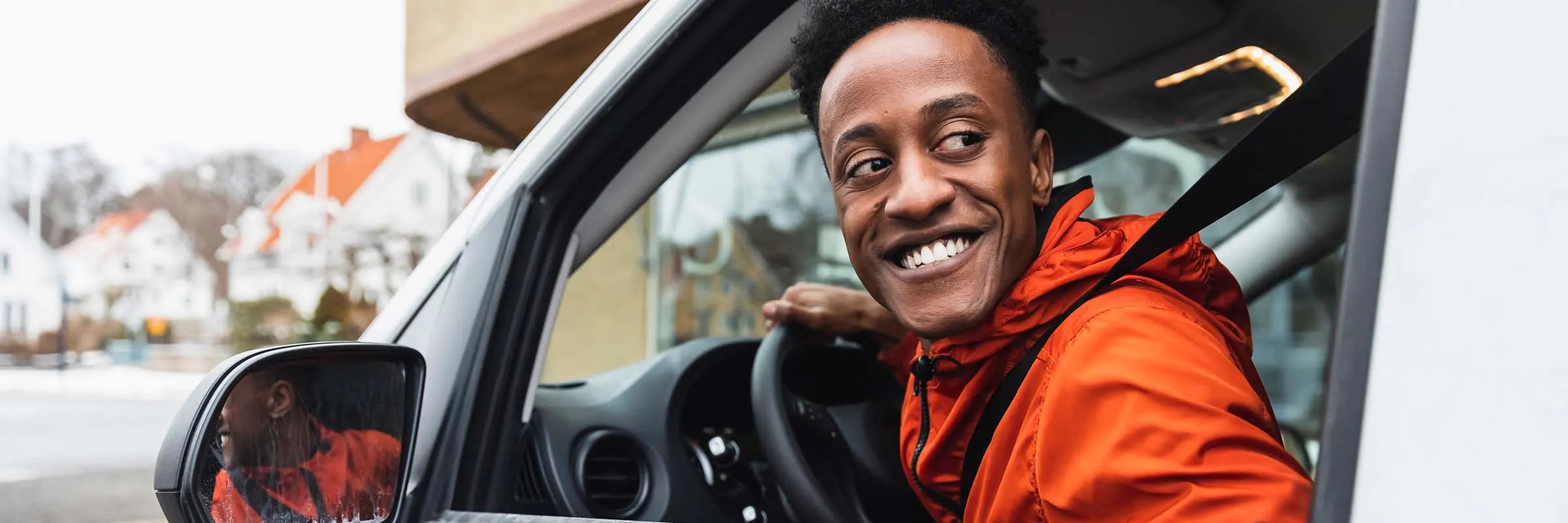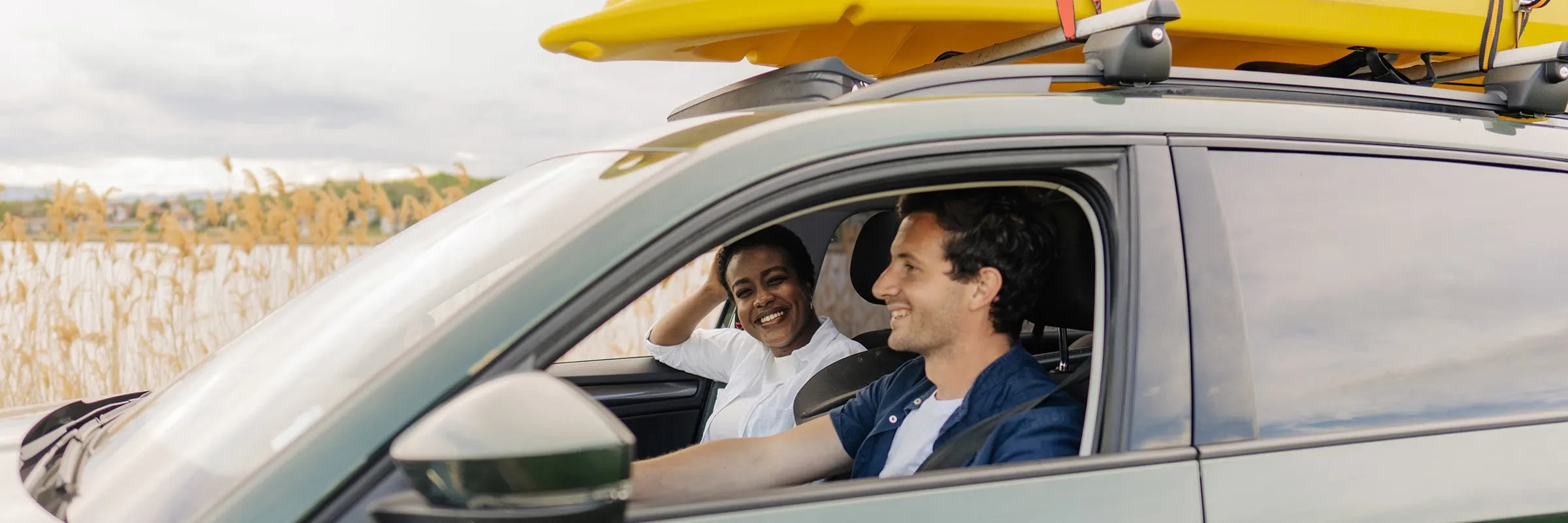When it comes time to replace your car, you have a lot of choices to make. New or pre-owned? Sedan or SUV? Gas or electric? Perhaps the biggest decision you have to make is whether you will lease or buy your vehicle.
This all-important conundrum begs another question: What kind of car person are you? Some people grow attached to a set of wheels and drive their beloved clunker into the ground before even considering a trip to the dealership. Others live for that new car smell, an odometer at zero and all the latest gadgets and gizmos that’ll fit on the dash.
Deciding which side of that road you fall on can help determine which financing option is right for your next vehicle.
Buying vs. leasing: what's the difference?
Both options end with you driving your new wheels off the lot, but each offers a different picture of what payments will look like once you bring your next car home.
Buying a vehicle
With this route, you’re either paying cash or financing the cost. Most buyers make an initial down payment and then a monthly payment including finance charges. Eventually, buyers get clear ownership of their vehicles, with no liens on their title. There are no limits on mileage or how long the buyer keeps the car. As the owner, you can also choose what to repair and when, and can sell or trade the vehicle for its resale or trade value to help defray the cost of purchasing the next car.
Leasing a vehicle
If you choose this path, you pay only a portion of the vehicle’s cost. Depending on your financing plan, you may have the option of not making a down payment. Typically, you pay to use the car every month, plus a rent charge (which is similar in concept to an interest rate). There are usually limits to how many miles you drive, and you typically have to make agreed-upon repairs under the terms of the lease. At the end of the lease— usually two or three years — you can decide to buy the car at the price listed in your lease agreement or get a new one.
Find the right path for you
Now that you know the basic difference between the two options, you may be wondering which choice makes the most financial sense for your next car. There’s no right or wrong answer, but taking the time to think through your budget, financial goals and personal vehicle needs can set you off on the right track. Before you hit the dealership and sign on the dotted line, consider these major factors.
Learn more: Find dealerships in your area that work with us.
Cost
Although monthly payments tend to be lower on a leased car than a purchased car, leasing can end up costing relatively more compared to financing the purchase. When you buy a car, you eventually pay it off — and at that point, you can keep driving it as long as you’d like without monthly financing payments. And you can sell or trade it to raise cash for a new car or other expenses.
On the other hand, if you lease a vehicle, you’ll have to either buy it once the agreement ends or lease another and continue making lease payments. (And if you end the lease before the full term, you may have to pay a large penalty.) Either way, you usually end up paying more than you would have if you had bought the car and continued to use it for years afterward.
Credit Score
Whether you buy or lease, your credit score matters. However, leasing may require a higher score to get the lowest monthly payments. About 83% of new car leasing in the first quarter of 2021 was to consumers with a credit score above 660. The average credit score for leasing during that period was 734.
While it may be possible to lease a vehicle with a lower credit score, it could leave you with higher monthly payments. But don’t be discouraged. If leasing is your goal, you can improve your credit score by doing things like chipping away at credit card balances and regularly paying all your bills on time.
Although monthly payments tend to be lower on a leased car than a purchased car, leasing can end up costing relatively more compared to financing the purchase.
Driving needs
A large part of whether you should lease or buy comes down to your daily life and driving needs. For instance, leasing may make sense if you want a new car with the latest features every two or three years, need lower monthly payments and plan to keep your mileage low.
Bear in mind, if you exceed the yearly mileage limit in your lease agreement, you will likely have to pay a fee on the overage, which could run you 10 to 50 cents per mile. That could add up quickly. Go 5,000 miles over your limit? You may be looking at $500 to $2,500 extra when your lease ends.
On the other hand, if you have a long commute, love to take weekend getaways or are a road trip fanatic, buying a car may be the right choice for you since there’s no mileage limit when you own a car. When you purchase a vehicle, you also have the ability to customize it to your preference and keep it for many years to come.
Vehicle upkeep
You should also consider car maintenance and repairs. When you lease a vehicle, you need to carefully follow the maintenance schedule outlined in the owner’s manual. However, many new leased cars come with some sort of free maintenance plan, meaning you won’t be on the hook for costly repairs.
When you own a car, you have more control over what to repair and when. You can also sell or trade up the vehicle for its market value to help defray the cost of purchasing the next car. But with freedom comes responsibility. If something breaks or you’re in an accident as an owner, you’re responsible for any charges not covered by your insurance. And your manufacturer’s warranty may not cover the costs associated with repairing or replacing some parts, particularly technology components.
The road to your next vehicle
Both buying and leasing a car can have benefits and downfalls. Having a car is a large expense, so you need to take your lifestyle and what you want (and need) from it into consideration before signing any contract. Weigh all the factors and carefully outline your budget as you map out the route to your next vehicle.



